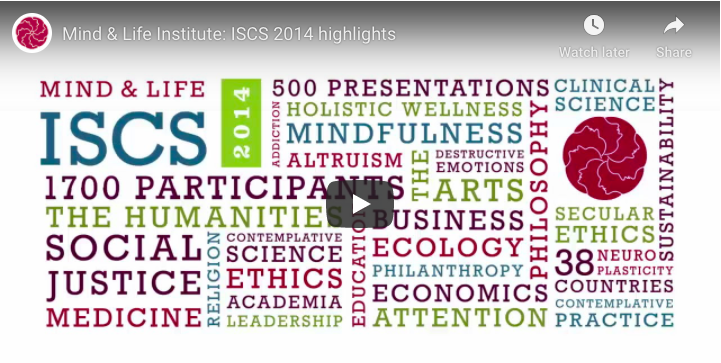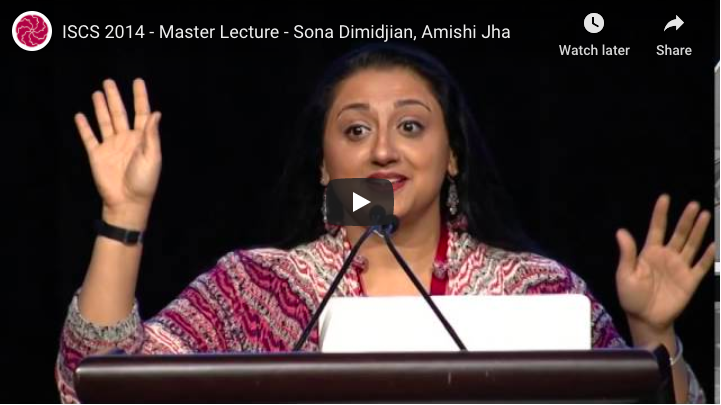Topic Archives:
Concurrent Session 5 – Self, Nonself, and Silencing the Self: Dangers and Possibilities
This presentation brings Buddhist teachings on anatta to research findings based on the Silencing the Self Scale to examine central concepts of self and selflessness from Buddhist and Western psychological perspectives. Anatta, realized through meditation, insight, and teachings, is an essential aspect of the Buddha’s teaching on liberation from suffering. In contrast, selflessness, and self-silencing, …
Concurrent Session 5 – Different Neural Characteristics Associated with MBSR and the Relaxation Response
The two most widely used stress reduction programs are MBSR and the Relaxation Response (RR). Although both programs use meditation techniques and effectively reduce stress, proponents of each program postulate very different mechanistic models. We hypothesized that there would be both shared and unique neural mechanisms associated with each program, as well as differential psychological …
Concurrent Session 3 – Mindfulness, Compassion, and the Therapeutic Presence: Utilizing Contemplative Studies in Clinical Mental Health Counseling
Contemplative studies are integrated into clinical mental health counseling in order to promote one’s natural drive towards self-exploration, self-awareness, and self-actualization. This panel comprises counseling professionals and current doctoral candidates who specialize in various mental health-related topics, including interpersonal trauma, identity and the holistic self, and substance-use treatment. Panelists will create an interactive and discussion-based …
Concurrent Session 3 – Clinical Applications of Meditation for War-Related Mental Health Consequences and Co-Occurring Conditions
The prevalence of post-deployment mental health conditions is high. Deployment to a war zone is associated with a threefold increase in new-onset posttraumatic stress disorder (PTSD), often co-occurring with depression, anxiety, substance use disorders, sleep disturbance, and chronic pain and resulting in high long-term personal and societal costs. High prevalence, combined with the complex chronic …
Concurrent Session 3 – Mindfulness and SelfCompassion-Based Exposure Therapy for Combat Veterans with Posttraumatic Stress Disorder: Clinical Outcome and Neuroimaging Studies
Pilot work (thanks to a Mind and Life Varela grant) found significant symptomreduction following MBCT adapted for combat-related posttraumatic stressdisorder (PTSD). Our subsequent fouryear, federally funded project developed a novel 16-week PTSD group intervention for veterans returning from Afghanistan (OEF) and Iraq (OIF), utilizing mindfulness and self-compassion meditation (Mindfulness-Based Exposure Therapy, or MBET). PTSD patients …
ISCS 2014 – Master Lecture – Sona Dimidjian, Amishi Jha
Successes and Challenges of Mindfulness Training in Applied Settings
Master Lecture – Successes and Challenges of Mindfulness Training in Applied Settings
The science and practice of mindfulness-based interventions have witnessed exponential growth in recent years with applications in diverse settings, including health care, education, the workplace, and the military. Such expansion raises complex and engaging questions for the emerging field of contemplative science. In this panel, we discuss questions such as: What do we know and …
Concurrent Session 2 – Mindful Games: Games as a Tool for Meditation and Reflection
Most think of games today as encouraging violence or addiction amongst their players. However, there is a growing trend in the game industry towards the development of games that encourage a more contemplative, reflective form of game play. This presentation looks at the possibility of games becoming the modern form of meditation. Games are already …
Concurrent Session 1 -Neurocognitive Processes of Addiction: A Therapeutic Role for Mindfulness?
Several neurocognitive processes have been implicated in addiction, including motivated attention, reward processing, emotion regulation, stress reactivity, delay discounting, and inhibitory control. These processes appear to depend on functionally integrated cortico-limbic-striatal circuits whose dysfunction supports the acquisition, maintenance, and reinstatement of addictive behaviors. Novel interventions that target the neurocognitive processes underlying addictive behavior may hold …



